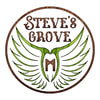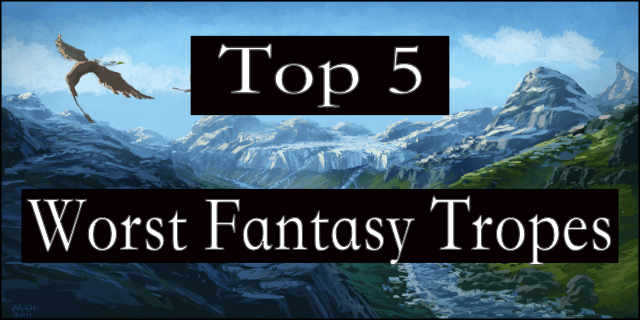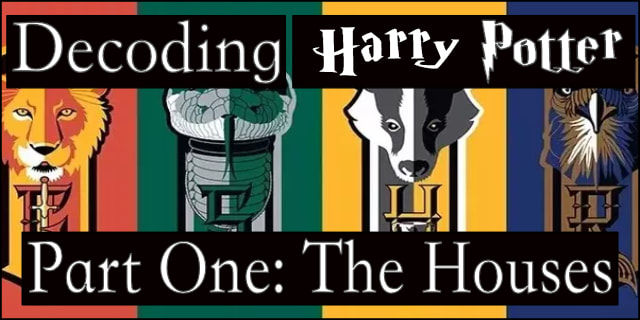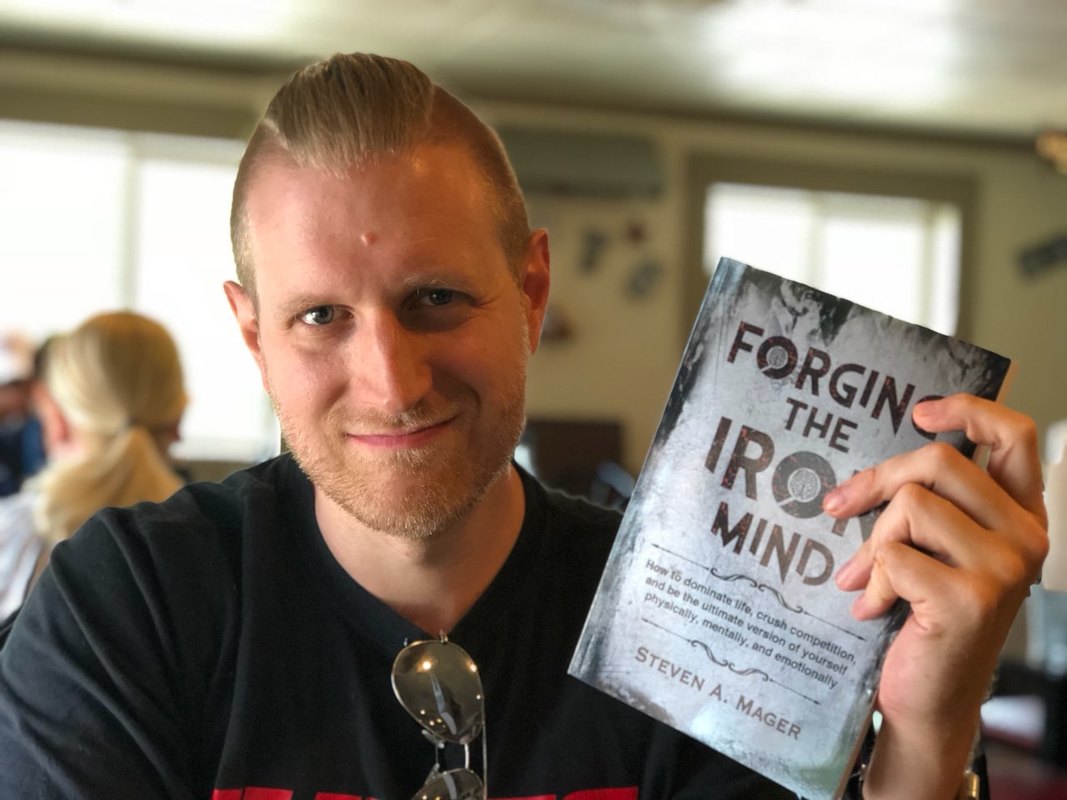|
Fantasy has been my favorite genre for as far back as I can remember. Be it movies, TV, or books, I’ve always been fascinated by alternate universes featuring fantastical creatures and people, elaborate magic spells and artifacts, and epic quests. Growing up, Tolkien, Piers Anthony, and Terry Brooks were a few of my favorites, leading to present day masters such as Sanderson, Rowling, and Rothfuss. Characters such as Conan, King Arthur, Legolas, and many others shaped my perception of the fantasy genre, eventually leading to a desire to write one of my own. When I set out to write The Witchbreaker Saga, I made a list of things that enable immersive fantasy and also a list of things I wanted to avoid within the genre. Eventually I’ll write a post about the tropes I like, but for now, let’s settle in and look at the tropes I try to avoid that shaped my work. Let me preface this by saying it is possible to still use these tropes and get away with it, as long as your characters are interesting, your world complex, and the conflict realistic.
5. The oddly specific magical item that saves the world or completes a quest. Our heroes have encountered a problem. Perhaps it’s a curse, plague, sickness, or a villain with a specific power. What’s a writer to do? Why, invent a magical item or god that just happens to possess the exact effect needed to counter that problem. Serialized fantasy TV such as Legend of the Seeker, Xena, and Hercules are most responsible for this one, yet it is still seen in books as well. This trope becomes even worse when this object is encountered later in the book as a Deus Ex Machina, only existing to solve the heroes dilemma without sufficient foreshadowing. Once could argue that Lord of the Rings possess multiples of these such as the eagles, yet, Tolkien’s skill allows us to overlook them. Most of us aren’t anywhere in the same galaxy with Tolkien, so we must ensure we aren’t inventing oddly specific items to solve problems out of thin air. Out of the multitude of examples, my least favorite has to be time manipulation, such as the Time Turner in Harry Potter, which could have been used to solve any number of problems, yet only cropped up once to save Buckbeak and Sirius Black, and for Hermione to take more classes. 4. Stereotypical Races It still surprises me how so many writers still rely on the classic Tolkien-esque races. Be it the savage but honorable orc, or the wise, beautiful, and immortal elves, virtually every fantasy story still relies heavily on these stereotypes. Warhammer, Magic the Gathering, Warcraft, and many others still use these classic racial stereotypes, rarely injecting anything new or original into the formula. 3. The One Dimensional Villain I love Harry Potter. I even own a Sorting Hat, and have read each book and watched each movie multiple times over. Yet, Voldemort has to be one of the worst villains ever conceived. Despite the world of Harry Potter possessing some of the best world building of all time, somehow Voldemort ends up as one of the worst one note villains in popular fiction. Generically evil villains have to be one of my least favorite tropes in any media, because in real life, every villain believes they are the in the right, and can usually list off a litany of reasons. Even the worst of the worst, such as Hitler, Stalin, and Mao, could easily articulate why what they were doing was correct in their mind. Let me give an example of one of the greatest villains ever created: Magneto, from the X-men. Unlike many of these villains, Magneto has actual, believable, and sympathetic reasons why he does the horrific things he does. As a Holocaust survivor, he saw what happened when a certain class or race of people were targeted, and he is determined not to allow that to happen again. So even though he is committing horrendous acts, we can at least understand why, and on some level, empathize. Thanos is another. His Malthusian philosophy is actually a real philosophical belief, and in his mind, he is the only one with the will to ensure the long term survival of the universe. 2. Idiotic Decision Making This rakes on my last nerve. If there’s one thing I can’t stand in fiction, it’s the hero making absurd decisions and justifications to advance the plot. Not confined only to the realm of fantasy, this one is everywhere, but most prevalent in horror. This usually ties into themes related to a trope known as Joker Immunity, where the hero utterly refuses to kill the villain, no matter how much havoc they’ve created, i.e. Batman refusing to kill the Joker, thus enabling the Joker to kill hundreds or thousands more. This is particularly idiotic since no such a thing exists in real life. No one would bat an eye at executing Hitler on the spot, yet Batman is perfectly willing to keep the Joker alive no matter how many dozens of times he’s broken out of Arkham Asylum and murdered thousands. At a minimum, if the villain has perpetrated sufficiently evil acts, the hero should at least attempt to kill them. Now, if the villain escapes because of their own cunning or skill, that is a turn I can live with. 1. The Chosen One and The Prophecy The alpha and omega of overused tropes. The stable boy that finds out he’s the only one that can save the kingdom, and he’s actually a secret prince. The maid that wakes up one day infused with some magical ability prophesied to save the world. Listen, I’m all for a hero’s journey. It’s a classic storytelling arc that still works to this day if executed properly. However, the Chosen One irks my last nerve. When it just so happens that this completely unremarkable person is destined to save the world, it drives me bananas. I realize this plays on the psychological need for us to feel special, that we wish we could wake up one day and be granted supernatural powers leading us to greatness and fame. Many people live unremarkable lives, so this sort of wish fulfillment psychology will always work on some level. The worst part of this trope is that many times it grants what’s known as Plot Armor, which is a term given when you absolutely know the hero isn’t going to die. This is a big reason Game of Thrones got so popular, is that the perception of characters having plot armor was shattered multiple times over. The other element of this trope I hate, is that it sometimes demonizes talent and hard work. Yeah, I know you worked your entire life and prepared diligently, but this lazy doofus over here was born to save the kingdom, so hey, sorry about your luck. What’s your least favorite fantasy trope? Hit me up on social media and let me know! Steve Mager If you enjoyed this article, please share it and follow me on social media: Facebook: www.facebook.com/StevenAMager Twitter: https://twitter.com/StevenAMager Instagram: https://www.instagram.com/steve_mager/ Get my book, Forging the Iron Mind: [https://amzn.to/2uxRvCs]
0 Comments
Harry Potter, without a doubt, has become a cultural icon over the years. Generating billions in revenue, an entire theme park, and enchanting millions of fans are just the beginning of the impact of the Potter series. I have been fascinated for some time about the techniques Rowling used, that allowed Potter to become such a fantasy juggernaut. Now that I write fantasy myself, I spent a great deal of time analyzing what techniques work, and why they do so effectively. How did Potter succeed where others failed? After examining several fantasy series, I’ve detected a few reasons Harry Potter succeeded, so I thought I’d write a series of blog posts breaking down the most effective parts of the series. I’ve been in sales and studied persuasion technique and effective wordplay for years, so it fascinates me to watch when it works and when it doesn’t.
I’ve made the argument for some time that Harry Potter bears arguably the most effective world-building in the history of fantasy. Note that I did not say the most in-depth or most comprehensive, I said effective. So today, I’ll talk about just one small piece of the world building puzzle: The House system. I believe the Hogwarts house system to be one of the most compelling pieces of world-building in fantasy history, and I will attempt to break down why it worked. Generally, people know the four Houses, Gryffindor, Slytherin, Hufflepuff, and Ravenclaw. If you spend five minutes on social media, you will see people placing the house they identify with in their profile, and having elaborate discussions as to why they identify with that particular house. One of the most effective modern literary techniques is to create a character, item, or situation that allows the reader to see themselves and project onto. Harry Potter has a series of well-developed characters, so Rowling used that very same technique but did so with an elaborate House system. Let’s examine why the House system was so effective as a literary tool. First, let’s lay out the characteristics of each house. Here are the general breakdowns as most people see them. Gryffindor: Courage, Honor, Bravery, Daring Ravenclaw: Intelligence, Savvy, Creativity Hufflepuff: Humble, Benevolence, Friendship Slytherin: Ambition, Cunning, Resourceful Those are generic breakdowns as seen on the surface, but let’s delve a little deeper into the genius-level wordplay Rowling used for the House names. If you notice, the very names evoke the qualities present in the House. Gryffindor evokes the image of a regal Griffon, a fantasy creature that only shows up in the book as a statue. When one thinks of a Griffon, they think of the lion and eagle hybrid. Keep in mind that lions and eagles are already two of the most majestic creatures on Earth, so just evoking those two animals is already a powerful image. Just look at the house sigil, a roaring Griffon atop searing scarlet and gold, two colors that no one has trouble associating with courage and bravery. The name and the image, along with the animals represented in our mind’s eye, conjures up the very qualities the name itself generates. Ravenclaw automatically generates two images: a stately raven (thanks Poe) and a sharp claw. Ravens have long been associated with omens and intelligence. Note that ravens can make complex decisions, as they have one of the largest “bird brains.” In other words, Rowling intentionally chose one of the smartest birds to be immediately identified with the House most associated with intelligence. Then we have the word claw, which immediately conjures the image of a razor-sharp talon, so in combining the two, we get sharp intelligence, the very characteristics of the house itself. Hufflepuff, right out of the gate, makes us think of Huff and Puff, which is what dragons and pig-eating wolves do. Not just any dragon though, that specific combination of words conjures the fairy tales of yore. You don’t think of a raging spine covered dragon or wolf, you think of a sort of plump, cutesy, friendly version, which falls right in line with the characteristics present in the house. The house sigil, however, is a badger, a docile creature that fights fiercely when cornered. Slytherin immediately makes one think of slithering, a characteristic present in snakes, as well as back-alley criminals. Slither is a particularly effective word to build on because it isn’t a word you hear every day, and carries precise connotations. One of the prime lessons of persuasion and wordplay is to pick words that stick in people’s heads as unique, and slither does just that, conjuring up images of slimy snakes, and skulking around. So now that we’ve broken these down, I hope it’s clear that none of her choices were random or haphazard. She chose these words to build the Houses around because of what they evoke when we read or hear them. Yet, she went even further. Let's look at the founders of the houses: Godric Gryffindor Rowena Ravenclaw Helga Hufflepuff Salazar Slytherin Notice anything in the construction? It is the same technique Marvel has used for decades: Peter Parker Wade Wilson Otto Octavius Bruce Banner Reed Richards Stephen Strange Bucky Barnes And that doesn’t even begin to cover them all. This is a technique called alliterative naming, where the initials of a first and last name are the same letter. Why use this? It creates a pattern that makes it easier for our brains to retain the information. As I stated earlier, none of her execution in the world building of Harry Potter was an accident. She specifically engineered these words to not only allow us to project images and thoughts onto but easily remember. As a writer, it helps to learn the techniques used by the most successful, and as we can see here, her success is not an accident of luck. Every fantasy book has various guilds or orders, yet they are usually called a thieves’ guild, or a warriors’ guild, which does nothing for the reader concerning projection, nor do they sound cool or unique. Rowling trumped every other fantasy book by not only incorporating a traditional fantasy trope but elevating it to a far higher level just by changing the wordplay. Now, as a result, millions of people know to what house they’d belong. If you are a writer, this is the standard you need to apply to yourself. Is your world building causing the reader to see themselves? If not, you may want to go back to the drawing board, as the standard is now incredibly high. In this series, I’ll be exploring other elements of the Potter series and how they managed to combine to build the most iconic modern fantasy series. Let me know what you thought, and if you have ideas for things you’d like me to explore in this series. Thanks for reading! Steve Mager If you enjoyed this article, please share it and follow me on social media: Facebook: www.facebook.com/StevenAMager Twitter: https://twitter.com/StevenAMager Instagram: https://www.instagram.com/steve_mager/ Get my book, Forging the Iron Mind: [https://amzn.to/2uxRvCs] |
AuthorSteve's blog where he talks about anything and everything: writing, fitness, mindset, movies, TV, and his favorite stuff. Archives
November 2019
Categories
All
|
Copyright © 2015





 RSS Feed
RSS Feed